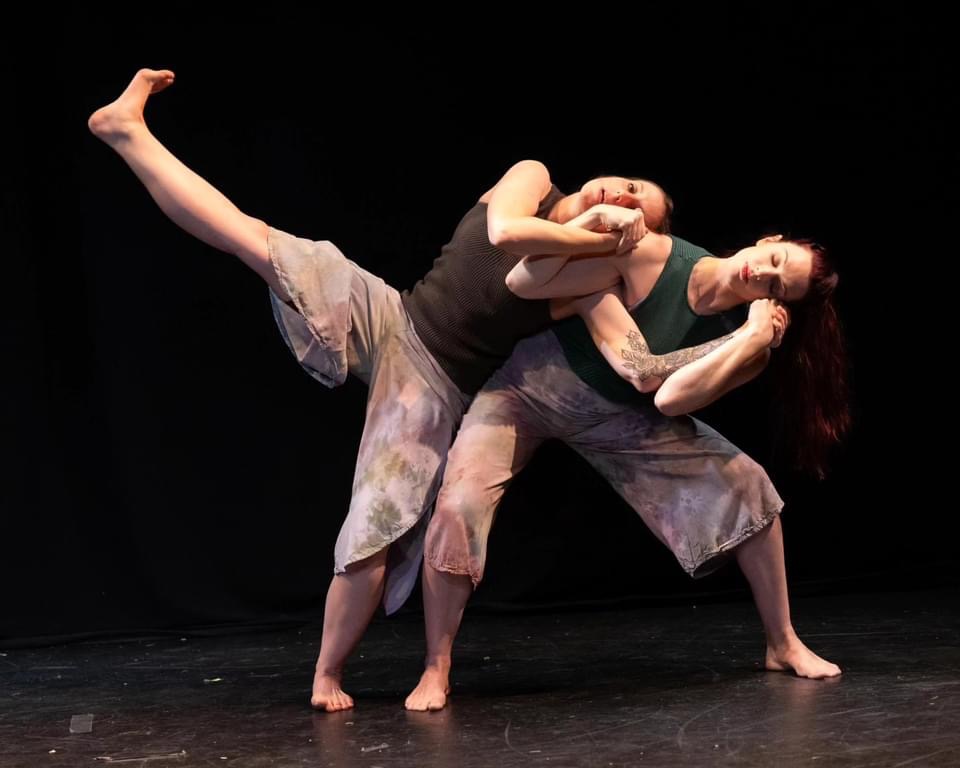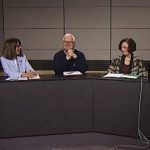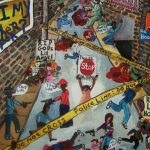The art of dance finds its meaning in the power of metaphor. For Jessica C. Warchal-King, director and founder of the JCWK Dance Lab, dance always has been, in her words, “a holistic practice for me.”
It is telling that she holds an undergraduate degree from Muhlenberg College not only in dance but also in anthropology. As such, her journey has been heavily influenced by the “why” of violence, especially since her studies revolved around the terrorist attacks of Sept. 11, 2001.
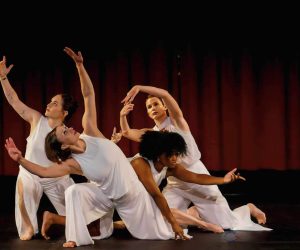
“One of the ways I processed that tragedy was through dance,” said Warchal-King, an Exeter Township resident, who also holds an M.F.A. in dance and choreography from Temple University. “Dancing releases the happy hormones in the brain, the endorphins. When we move, we connect our minds and bodies, as well as our spirit. And when we’re joyful, we more easily engage in all the layers of ourselves. We have the capacity to connect with other people.
“This allows us to know ourselves better, allowing us to empathize with the world around us.”
As such, bridges are more easily built. Communities grow stronger. The arts and sciences work together to solve division, thereby restoring health. So, when Warchal-King learned of the Rodale Institute’s work with what it calls regenerative organic agriculture, she instantly was inspired to explore that concept through dance.
Hence, “Regeneration,” a new work by JCWK Dance Lab in collaboration with the work of visual artist Elaine Soltis and Berks County musicians and composers Jill Haley, Marty Bonk and Riley Monasmith, began to take shape. After months of work with her company and her fellow artists, “Regeneration” will be performed on April 20 at 7:30 p.m. and April 21 at 2 p.m. in Alvernia University’s Francis Hall Theatre.
The idea developed as a means of examining society’s emergence from the pandemic as it struggles back to health. And just as Rodale searches for ways to restore nutrients to soil ravaged by commercialized agriculture, Warchal-King hopes this latest creation will address similar issues in our damaged culture.
In addition, the dance lab has added an intergenerational component to its “Regeneration” project by working with the residents of the senior living community at The Heritage of Green Hills in Cumru Township.
“We create and tell stories with the people who live there,” she explained. “They bring a different perspective to the process, and we use the vehicle of dance to have these conversations. It’s one of the ways we can use our tools and gifts to make our community a better place, to help it to regenerate.
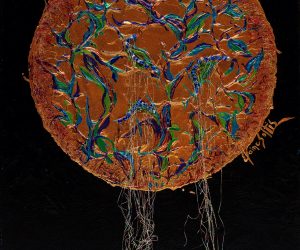
“Elaine Soltis’ art is inspired by climate change. Jill Haley’s compositions are inspired by national parks. These collaborations can lead to positive, non-violent social change right here in Berks County.”
Warchal-King said that the innovative lighting concept for “Regeneration” is another aspect of this huge collaboration.
“It’s a multimedia experience,” she added, describing it as “a mosaic of artmaking and storytelling.”
The performers who will breathe life into “Regeneration,” along with Warchal-King, are Arielle Ridley, Li Daniels, Megan Zalek, Milvia Cruz, Sarena Gable and Cady Monasmith.
Monasmith, who is the sister of one of the production’s three composers, Riley Monasmith, has worked with Warchal-King and the dance lab for three years. The West Reading resident, as with the entire company of diverse artists who brought “Regeneration” to fruition, has roots in Berks County. She first met Warchal-King when both women were young dancers with Berks Ballet Theatre.
These days, Monasmith brings another layer of expertise to her career as a professional dancer. She is a licensed clinical psychologist who works for a private practice in Lancaster. She treats mental and behavioral health disorders, including anxiety, mood disorders and substance abuse. She incorporates concepts of mindfulness and dance therapy into her work.
She has the background, with a B.F.A. in dance performance from Temple University and master-of-arts degree from Alvernia University.
“My hope is to provide adult women who have experienced trauma a space to feel safe in their bodies within a group that uses dance and mindfulness as a means of restoring emotional health,” Monasmith said.
In her work with JCWK Dance Lab, she brings that knowledge to both the elderly and, recently, to elementary-school pupils.
“We’re recycling choreography to meet the needs of each of those populations,” she explained.
In terms of “Regeneration” specifically, Monasmith said that this is the first time the company, which explores issues weighing on our society, has addressed climate change directly.
“The intention of the project is to embrace joy, and through it to celebrate the work we do to change the environment for the better,” Monasmith said. “And not just for the moment but for the future as well. It’s important to seek positivity in violent times. We’re living in an age when it’s not easy to find a nugget of joy.
“Dance offers an alternative way to confront things that are challenging, when words are not enough – or when we don’t even know what words to use.”
Monasmith is thrilled that “Regeneration” is tied into her clinical background.
“It focuses on making change for the better – on revealing an awareness of our surroundings,” she said. “We’re saying, ‘Hey, this is happening. You’re a part of this community, and we think you should know about it.’ ”
One of the many things Monasmith likes about the way JCWK Dance Lab works is that Warchal-King encourages the dancers to bring their own interpretations to the dance floor, to find ways to incorporate each performer’s understanding of the themes into the larger choreography.
“Jess does the research,” Monasmith said, “such as Elaine’s artwork or the composers’ music and whatever she has learned about soil regeneration and brings it to rehearsal, and she asks us to come up with adjectives describing those elements. Then each of us creates a 16-count (dance) phrase. We manipulate the choreography, and in that way it becomes a collaborative process.
“By allowing us to help create the movement, we remain authentic to ourselves, our own artistry. That’s not something you see very often in dance companies.”
Warchal-King says it’s purely a coincidence that the production is scheduled for the weekend prior to Earth Day and that April 21 is the beginning of National Youth Violence Prevention Week. Thus, the timing for “Regeneration” could not be more thematically appropriate.
Ticket information for “Regeneration” can be found on the company’s website at jcwkdancelab.org/regeneration. All tickets are general admission and range from $15 to $20.
George Hatza is the former Entertainment Editor of the Reading Eagle. He is retired and living in Exeter Township.
